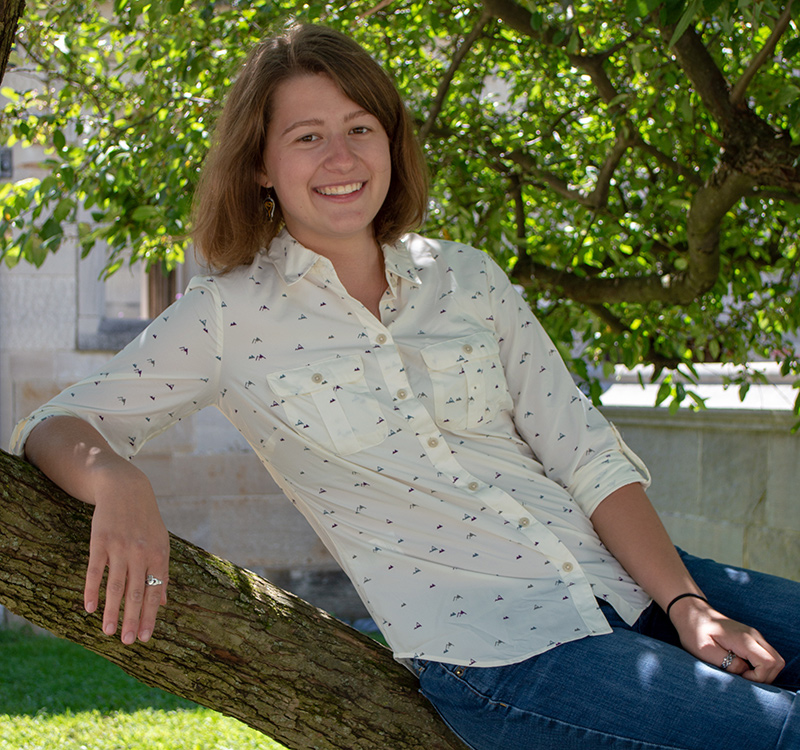
By Liz Harper, American Forests
My fascination with nature had an early and slightly unusual start. From a young age, I collected rocks. I wandered the woods behind my house in Pittsburgh and gathered muddy specimens that were cool shapes. I knew nothing about geology, but any time a shiny or specially colored stone caught my eye, I’d slip it in my pocket. My mother, not a fan of all the rocks she was finding in her washing machine, suggested I consider leaving such things in nature, where they belonged. That, in a roundabout way, was my first introduction to the philosophy of leave no trace. Instead of heeding her advice, however, I hid my rocks in a shoebox beneath my bed.
Rock collection aside, I enjoyed many other aspects of nature growing up. My family always emphasized the importance of getting outside and being active, so I played sports and went camping and participated in outdoor activities with my Girl Scout troop. But as much as I enjoyed those activities, I wanted to do more. Through my father, I heard about Philmont, a Boy Scout camp in New Mexico that offers 10-day backpacking trips to scouts. The prospect of living off the grid for a week and a half piqued my interest. I wanted to try it.
It wasn’t until several years later, when my brother’s troop began planning a trip to New Mexico, that my opportunity finally arrived. There was room for more adults on the trip, and I, having just started college, qualified. I registered as an adult leader and trained on my own at college, hiking every day. It didn’t seem real. By the time our trip rolled around, I was brimming with excitement and nerves. What if I hadn’t trained enough? What if it was too hard? What if the trip was everything I dreamed it to be?
Fortunately, I couldn’t have imagined all the ways that trip would change my life. As we trekked through the mountains, hiking a grand total of 100 miles, I was challenged in ways I never expected, physically and mentally. I was awed by the wilderness around me, teeming with life. And I was fascinated by the ponderosa pines, the signature tree of the area. I learned to pay careful attention to the natural world, to look for cacti and woolly mullein with as much excitement as I looked for bears and mountain lions. I became aware of the vastness of the ecosystem around me and how every living thing (and some nonliving things) played a part in helping that system thrive.
After such an incredible experience, I couldn’t stay away. I found myself returning to Philmont to work the next summer and the summer after that. This past summer, my third summer in New Mexico, things took an unexpected turn.
A fire that started on private property spread onto camp property. The first day, all I could see was a tiny plume of smoke in the sky. I didn’t think it was anything to worry about, but then, I didn’t know what to expect; being from the east, wildfires were solidly outside my area of expertise. Instead of shrinking, the fire grew. At its height, the Ute Park fire covered 36,740 acres.
That fire was only one of a number of fires that burned in northeastern New Mexico this summer. As the other staff members and I dealt with the stress of evacuations and highway closures, we also had the opportunity to learn about healthy forestry practices and the dangers of fire suppression. The importance of trees in our environment became more obvious to me than ever before.
Originally, I wanted to work for American Forests because I wanted to experience working for a nonprofit that focuses on conservation. I’m still excited to experience that, but after everything I learned this summer, interning here has new meaning for me. My passion for the outdoors has grown exponentially. I want to be part of a group that is involved in environmental issues and is working to protect and restore forests. I want to be part of a group that advocates for healthy forests and healthy environmental practices. I want to put my communication skills to good use concerning issues such as those, so that no matter how much time passes, our forests and ecosystems remain strong, healthy and available to little girls who like to dig up rocks.